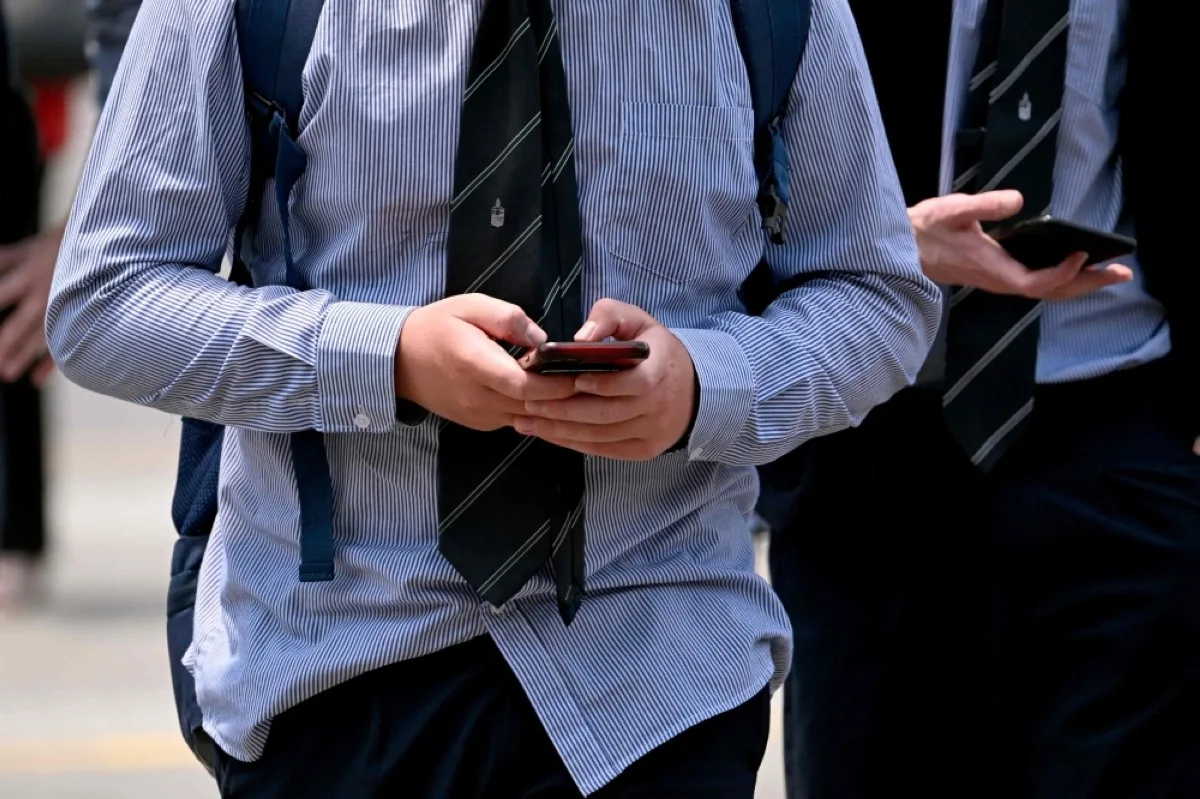Australia Takes Major Step Towards Social Media Ban for Under-16s

In a considerable flow, Australian lawmakers have exceeded rules that could soon make it illegal for children below the age of 16 to get right of entry to famous social media systems along with Facebook, Instagram, TikTok, and Snapchat. The invoice, which has already exceeded the lower house of Parliament, now heads to the Senate for debate. The proposed law, which would impose hefty fines on social media agencies that fail to conform, has sparked severe debate throughout the country, elevating crucial questions about the balance among shielding younger people online and proscribing their get entry to to social media.
The Proposed Legislation
Under the new policies, social media agencies might be required to take “reasonable steps” to save you minors under the age of 16 from developing bills on their structures. If they fail to do so, they might face fines of as much as AUD 50 million (about USD 32.5 million). These measures are a part of Australia’s efforts to protect younger users from the potential harms of social media, which includes online predators, cyberbullying, and the negative intellectual fitness consequences related to excessive use.
Prime Minister Anthony Albanese, a staunch advise of the invoice, has rallied in the back of the rules, framing social media as a harmful force that drives anxiety, peer stress, and exposes youngsters to risky on line content material. His push for the law has resonated with many Australian mother and father, with the Prime Minister emphasizing the want to get younger human beings far from their displays and lower back into physical sports like sports and out of doors play.
The ban might make Australia one of the strictest nations in the international concerning social media get entry to for young teenagers. However, the law, while bold in its motive, lacks specifics on how it will be enforced. It is predicted that it will take at least 365 days for the government to finalize the info and for regulators to put into effect the essential frameworks.
The Debate and Challenges
Despite the enormous assist for the rules, there are huge concerns approximately how powerful it will likely be. Critics argue that the regulation is indistinct, rushed, and could cause unintended results. Social media agencies have already voiced their objections, calling the legislation complicated and tough to implement. One foremost problem is that many age restrictions on social media structures may be without problems circumvented. Experts argue that children can effortlessly lie about their age whilst signing up for systems or use parental supervision to skip regulations.
University of Sydney professor Terry Flew, an expert in virtual verbal exchange, expressed skepticism over the law’s effectiveness, mentioning that the shortage of session and clean suggestions could bring about “symbolic coverage-making” in preference to producing a long-lasting and impactful solution. He mentioned that while the regulation can be nicely-intentioned, it could in the long run be ineffective at curtailing the real demanding situations that young human beings face online.
Additionally, late amendments to the invoice explicitly limit social media corporations from requiring new users to give authorities-issued ID to verify their age. This similarly complicates the enforcement of the regulation, as it creates a gap that minors ought to without problems exploit. The absence of a clear verification process increases doubts approximately whether or not the law will reap its intended goal of limiting underneath-16s from getting access to social media.
Potential Exemptions and Legal Challenges
The proposed regulation also leaves room for exemptions, with some businesses which includes WhatsApp and YouTube potentially being granted exceptions, as those structures are frequently used for leisure, academic, and other legitimate functions by way of teens. LinkedIn, the professional networking site, has additionally requested an exemption, claiming that its platform isn’t attractive to minors due to its awareness on expert content.
In addition to exemptions, the regulation is probably to stand felony challenges. Many observers anticipate that social media groups ought to take the government to court docket over the rules, mainly given the lack of readability concerning its enforcement mechanisms. With such sweeping modifications to how social media structures function, the regulation’s passage may want to lead to a prolonged criminal war, similarly delaying its implementation.
Expert Criticism: Short-Term Solution or Long-Term Change?
While the authorities’s purpose to defend younger people from on-line risks is extensively supported, many specialists argue that a blanket ban on social media for young adults may be a “knee-jerk reaction” that does not address the basis causes of the troubles younger people face online. Susan Grantham, a social media professional, cautioned that a ban would possibly isolate younger folks who depend on on line communities for social interaction, guide, and information. In her view, the ban may also create a dangerous situation in which adults post irrelevant content material, believing that children no longer have access to social media structures.
Grantham advocates for a extra nuanced technique to digital literacy, citing Finland’s model of coaching youngsters to suppose seriously approximately on line content material from a young age. Rather than really blockading get admission to, she believes that equipping youngsters with the equipment to navigate the digital international responsibly could be a extra effective lengthy-time period solution. This approach might help young human beings recognize the risks of social media, empowering them to make knowledgeable picks approximately how they engage with digital systems.
Teenagers Speak Out
The voices of young adults themselves have also emerged in opposition to the proposed ban. Many younger human beings argue that social media is an crucial device for staying connected with pals, own family, and groups. Enie Lam, a 16 year old excessive school scholar from Sydney, mentioned the capacity harms of social media but expressed doubts about the effectiveness of the ban. She argued that rather than banning get entry to altogether, efforts must consciousness on assisting young adults use social media responsibly.
“Young people are going to get in anyway,” Lam said, adding that the chance of making unregulated structures wherein minors are even extra prone may be a dangerous final results of the rules.
Public Support for the Ban
Despite the criticisms, public support for the proposed ban is overwhelming. A YouGov survey launched this week found that 77 percent of Australians aid the rules, up from 61 percent only some months in the past. The giant backing for the invoice underscores developing worries amongst Australian mother and father approximately the poor influences of social media on their children’s well-being.
Organizations such as the Australian Parents Council have also been vocal in helping the ban, arguing that social media structures must take extra duty for the protection and intellectual health of younger users. Jenny Branch-Allen, president of the council, noted that many households are suffering with the results of unregulated social media use and that this legislation ought to assist lessen harmful incidents related to younger people.
Global Implications and Future Trends
The Australian regulation is probably to have ripple outcomes past the country’s borders. Governments in different international locations, including Spain and Florida, have proposed similar laws, though none have been enacted but. China has already implemented strict regulations on social media for minors, inclusive of limiting their display time on systems like TikTok (Douyin) to just 40 mins in line with day for kids beneath 14.
As the talk over social media’s role in the lives of young human beings maintains to adapt, Australia’s ambitious pass may want to function a model for other international locations grappling with the challenges posed by using virtual structures. However, whether the law will reap its intended effects stays unsure, and its implementation will probably be a carefully watched development within the worldwide communique about the future of social media and youngsters on line safety.
Conclusion
Australia’s move in the direction of banning beneath-16s from social media has sparked full-size debate, raising critical questions on the stability among defensive young people and restricting their on-line freedoms. While the proposed legislation enjoys significant public guide, it faces challenges in phrases of enforcement, ability criminal battles, and the threat of unintended consequences. The regulation’s passage can have an enduring impact on the destiny of social media law, both in Australia and globally, as policymakers look for approaches to shield the properly-being of young humans in an increasingly digital world.


